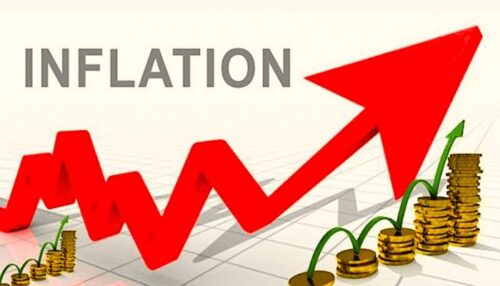 Inflation Decline Creates Policy Challenges
Inflation Decline Creates Policy Challenges
Nigeria’s inflation rate has dropped more than expected, posing a challenge for monetary policymakers as they convene for the first time this year on Wednesday. A rebasing exercise slashed inflation by approximately 10%, adding complexity to policy decisions.
On Tuesday, the National Bureau of Statistics (NBS) reported that the consumer price index (CPI) declined to 24.48% in January from 34.48% in December. This shift raises questions for the monetary policy committee (MPC), which raised interest rates six times last year, bringing them to 27.50% in an effort to curb inflation.
Analysts Predict Rate Stability
Experts at FBNQuest Capital anticipate that the MPC will maintain rates at their current levels, given inflation’s decline, a primary factor in the Central Bank of Nigeria’s (CBN) policy framework.
“The significant drop in headline inflation presents a dilemma for monetary authorities as it shifts real interest rates from negative to positive,” analysts noted in a Tuesday report.
Given these developments, they expect the MPC to pause its tightening cycle at the upcoming February 19-20, 2025 meeting. This will allow policymakers to assess inflation trends before making further adjustments.
Market Speculation on Future Moves
BusinessDay previously reported that most analysts expect the MPC to hold rates steady, citing CPI rebasing and the need to observe the impact of prior rate hikes on the economy.
Razia Khan, managing director and chief economist for Africa and the Middle East at Standard Chartered Bank, emphasized that the rescheduling of the MPC meeting has heightened interest in how CPI rebasing affects the inflation outlook.
“Overall, we expect the CBN to use the inflation data as justification for keeping interest rates on hold. With a modest 25 basis points increase to 27.5% at its last 2024 meeting, any aggressive easing could be viewed as premature by foreign investors and could jeopardize recent gains in stabilizing Nigeria’s forex market,” Khan stated.
She predicts that the CBN may begin easing monetary policy in the second half of 2025, but a faster-than-expected inflation improvement could prompt earlier rate cuts.
Projected Inflation and Interest Rate Trends
Bismarck Rewane, CEO of Financial Derivatives Company, expects a marginal decline in inflation but suggests that interest rates may remain at 27.5% in February. He anticipates policy easing by mid-2025 as inflation moderates, though interest rates are expected to stay above 20% throughout the year.
Some analysts argue that the CBN might remain cautious about inflationary pressures from recent tariff hikes. A Lagos-based financial expert noted that increased tariffs on telecoms, electricity, and ports could push prices higher, influencing CBN decisions.
“Given these factors, I expect the MPC to raise rates by 25 basis points at the next meeting to counter inflation risks,” the analyst said.
The coming weeks will determine whether policymakers opt to hold steady or take preemptive measures to manage inflationary pressures.



